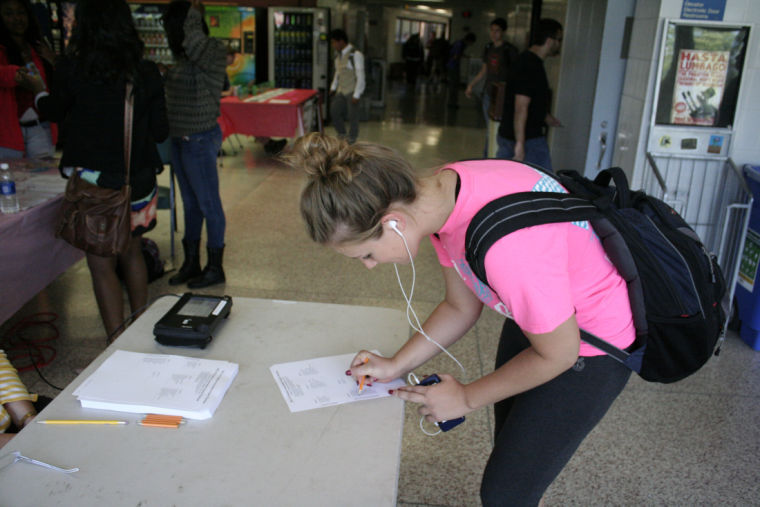SA Senate elections don’t see hoped-for turnout
Kelly Iseli, sophomore electrical engineering major, places her vote tuesday for the Student Association Senate at DuSable Hall in September 2013.
September 26, 2013
A group of about 30 students waited in line outside the Holmes Student Center Wednesday to get their hands on a Samsung Galaxy. Meanwhile, inside the Student Center, a lone poll-taker sat waiting for students to vote in the Student Association Senate elections.
NIU’s enrollment sits at 21,138, but only about 750 students voted in Tuesday and Wednesday’s election. That was short of Chairman of the Board of Elections Mike Theodore’s goal of 1,000 voters. About 675 votes were counted in the fall 2012 Senate elections. There were 937 votes in the 2011 elections.
The SA Senate is made of 40 senators representing five districts. They approve the budget for the Huskie Bus system and make allocations from student fees. SA Senate Speaker James Zanayed said the elections are “more than a popularity contest.”
The polling places were marked with signs reading “Vote Here SA Senate.” Theodore said voter awareness of the election is a “problem we face every year.” Some candidates saw the same issues.
“That’s one of the problems that I think, it’s just the advertising,” said Dillon Domke, a candidate for the SA Senate. “They have the signs on the doors, but you could stick a grass sign out here and you get like, 300 students an hour that come by and see that and think, ‘Oh, maybe I’ll stop in and vote.’”
This year’s election saw the introduction of a new system for displaying candidate profiles and positions online. Students interested in learning about the candidates running for the SA senate could go to everyvote.org/elections/41.
“The No. 1 thing we always hear from potential voters is ‘I don’t know who these people are, so I’m not going to go vote,’” Theodore said. “One of the things we did this year to try and mediate that was using an online system called EveryVote, which is actually in it’s first test run now. It’s in it’s beta program and it posts candidates profiles … we definitely saw candidates using that and heard positive feedback from voters who went and actually looked up candidate information.”
Theodore said that even in elections that are not competitive, candidates were starting to use the system to get their vote out.







